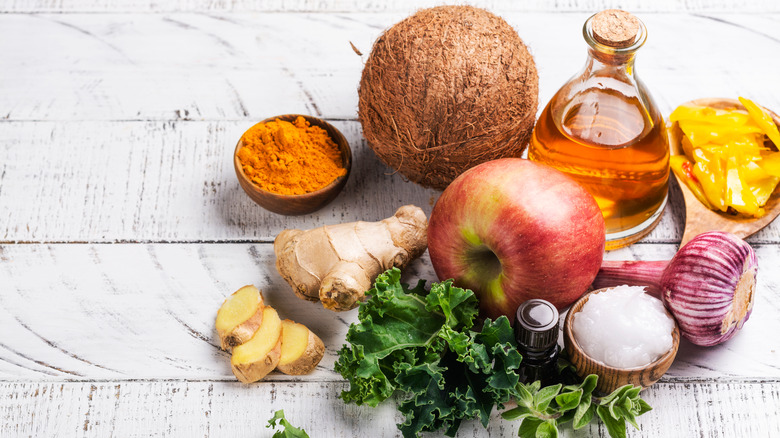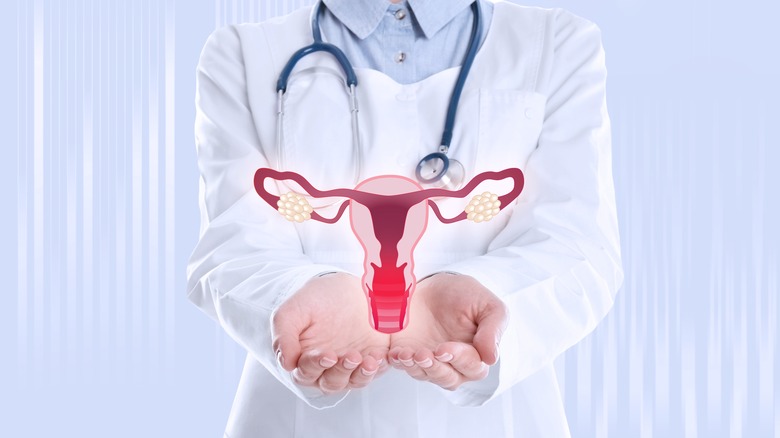Can A Low-Sugar Diet Help Prevent Yeast Infections?
Candida albicans is a yeast that lives on the skin and inside of the body, details the Centers for Disease Control and Prevention. It can be found in the gastrointestinal tract, mouth, and vagina. A yeast infection occurs when there is too much of this fungal strain present in the body.
Roughly 75% of women are affected by vaginal yeast infection at some point during their lives (via WebMD). The condition can cause a huge amount of discomfort. Some common symptoms of a yeast infection include pain, swelling, or itching around the vulva or vagina, unusual discharge, or a burning sensation when peeing. Its symptoms are sometimes confused with a sexually transmitted infection.
A yeast infection can develop in other areas of the body too, reports the Centers for Disease Control and Prevention, such as the mouth or throat, known as oral thrush. This may result in a white coat on the tongue, soreness, and difficulty swallowing (via Mayo Clinic).
Most of the time, yeast infections clear up either naturally or with treatment, per WebMD. On rare occasions, a person may develop a fungal infection in their blood or organs, which is known as "invasive candidiasis," explains the Centers for Disease Control and Prevention. This usually shows up as fever and chills but can also have lethal consequences.
How a low-sugar diet might help prevent yeast infections
A low-sugar diet has long been touted as the key to preventing yeast infections (via The Journal of Reproductive Medicine). The Candida diet, for example, is believed to help reduce or even stave off vaginal yeast infections, especially in women who are prone to them (via Today's Dietitian). This diet consists of low-sugar and non-starchy foods. It avoids yeast, dairy, and low-fiber carbohydrates which turn into simple sugars in your digestive system.
Sugars like glucose, fructose, and sucrose cause microorganisms to fester and multiply and can lead to a proliferation of Candida, per The Candida Diet. Eliminating or cutting down on sugar may reduce and even prevent the growth of Candida, according to research from the journal PLoS One. A 2021 study published in Cureus found that high glucose levels in the saliva or blood create a fertile environment for Candida overgrowth.
However, some researchers have argued that there isn't enough evidence to prove that a high-sugar diet feeds Candida (via The American Journal of Clinical Nutrition). More research is needed to explore the role that sugar plays in our microbial health.
Probiotics can help restore the right balance of microbes in the body, says a 2020 study published in the Journal of Fungi. Supplements containing Lactobacillus or Acidophilus have been shown to be effective at treating yeast infections. Other sources of probiotics include yogurt with live bacterial cultures and fermented foods like kefir, kombucha, and sauerkraut, notes Harvard Health Publishing. Nevertheless, reach out to your doctor if you think you think you may have a yeast infection and symptoms appear to persist.


